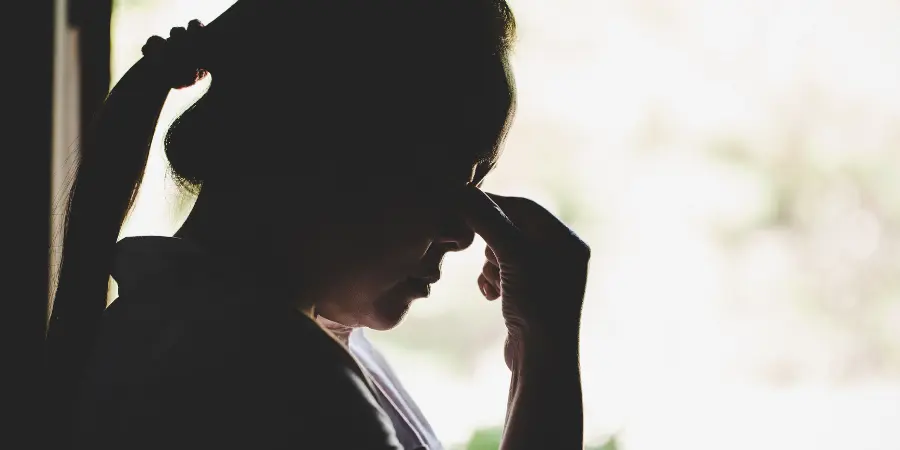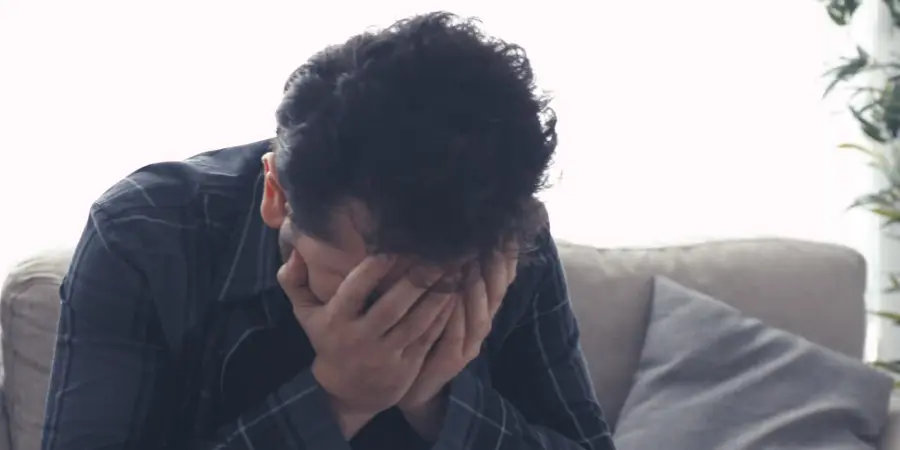Last Updated:
August 7th, 2025
Grief and Addiction | Symptoms and Treatment
Each individual responds to grief in their own way, as it invokes complex emotions in all of us; some of us may exhibit emotional behaviour, while others may hold their feelings in. Some people may struggle to manage their bereavement and thus turn to addictive substances like drugs or alcohol as a means of coping, whereas others may be able to function just as before. Therefore, there is no “one size fits all” response to grief; it pierces our core, and its effects can reverberate in numerous unforeseen ways. When someone develops addiction alongside feelings of grief, this is known as a co-occurring disorder, and to effectively overcome addiction, we need to address the effects of grief.

What is grief?
Grief is a natural yet overwhelming response to a loss of any kind. Grief can be a collective emotion many feel at once, such as in the aftermath of a tragedy, natural disaster, or war. Grief can also be a profoundly personal experience that follows the death of a loved one, the end of a relationship, the loss of a home or job, or the loss of good health.
What is addiction?
Addiction is a mental illness whereby a person feels powerless to stop using substances, whether drugs, alcohol, or food, or repeatedly engaging in behaviours to the point where it harms their health, work-life, and relationships.
Grief and addiction together: Signs someone is struggling with a co-occurring disorder
Addiction comes with various mental health problems, which can trigger an array of feelings in a person. Therefore, it can be hard to spot addiction in someone already entangled in the anguish of grief. However, there are some key signs to look out for. Read the following statements; if some seem familiar, it may indicate that a person is simultaneously dealing with addiction and grief.
- Since their loss, they have begun to use substances or alcohol more often.
- Since their loss, they have repeatedly been engaging in specific behaviours more often than before, such as gaming, gambling, and using the internet.
- Since their loss, they have been overeating excessively or severely restricting their food intake.
- Since their loss, their emotions have drastically altered- one minute, they feel “good”; the next, they can feel irritated and angry.
- Since their loss, they have become withdrawn from people they once associated with. They only seem to spend time with those who engage in specific behaviours.
- Since their loss, they seem irritable and hostile if they cannot access the source of their fix.
The connection between grief and addiction
According to the psychiatrist Elisabeth Kübler-Ross, there are five stages that everyone goes through when experiencing loss. However, it should be noted that a person’s transit through each step is not always linear. Many people may hop back and forth between different stages, and some may remain on a particular stage for extended periods.
With this in mind, let’s look at each stage of grief and explore how they relate to addiction.
The five stages of grief…
Addiction and complicated grief
While no response to grief is simple or easy, most people usually experience the five stages and, eventually, find peace in acceptance. Although they still (and may always) feel the pain of their loss, they can navigate through life with optimism for their future. However, complicated grief is a term used by psychologists to describe the process where a person is unable to move on or come to terms with their loss after twelve months or more. A person with complicated grief may feel as though life is not worth living in the absence of their loss, and in some cases, they may struggle with chronic depression and suicidal ideations.
Many factors contribute to complicated grief, such as:
- How a person died. If it was sudden or traumatic then the shock of the death may be just as distressing as the loss itself. In addition, 33% of people who lost a loved one to sudden suicide increased their alcohol consumption to cope with their loss.
- The death of a child. Parents who lose children are likely to feel the most debilitating forms of grief that can be extremely hard to process.
- Previous losses. Complicated grief may arise when a person has lost more than one person (or something of importance) in a short time; for example, a person may have lost a family member, a relationship and a job all in the same year.
With complicated grief, people in mourning may feel guilty or wish they could have done something to prevent loss from happening (thus feeling forever stuck in the bargaining stage). Their anguish may be so overbearing that they turn to substances to cope with sorrowful thoughts. Additionally, a 2017 study reveals over a third of people with complicated grief developed alcohol or drug dependency shortly after their loss, primarily as a means of numbing intense emotional pain, helping them get better sleep, seeking a source of energy to get through the day or escaping from unprocessed emotions.

The best treatment for coping with grief and addiction
If you feel like you are struggling with grief and addiction, know that there is help and support available to you. It’s highly recommended you seek out bereavement therapy as soon as possible. Bereavement therapists treat grief by looking closely at the five stages. Grief therapists focus on helping clients process all their emotions associated with their loss, whilst encouraging clients to cherish the memory of the person they lost. Most importantly, therapists help those bereaved to accept their loss and find a healthy way to adapt to life after their loss, by teaching them helpful coping mechanisms to employ whenever times get particularly challenging.
How Primrose Lodge can help
At Primrose Lodge, we are committed to treating addiction, and in the process, we will help you to process your grief. We aim to make you feel as comfortable as possible throughout your stay with us by taking care of your day-to-day needs and providing a supervised detox if required. We will then invite you to attend numerous pioneering treatments that have proven to be effective in beating addiction:
We can help you today
No one can escape grief and if you have found yourself trapped in the depths of addiction alongside unprocessed grief, we want you to know there is help available. Primrose Lodge is determined to provide you with the treatment you need, so you can release your emotions in a safe and secure space, whilst at the same time freeing yourself from the grip of addiction.

